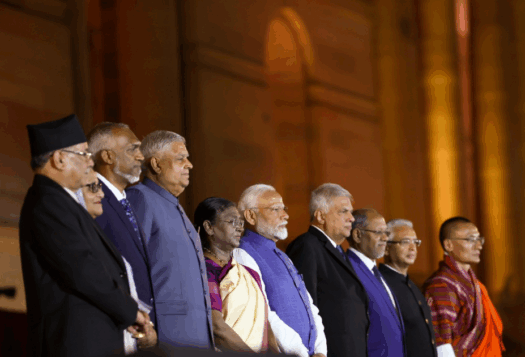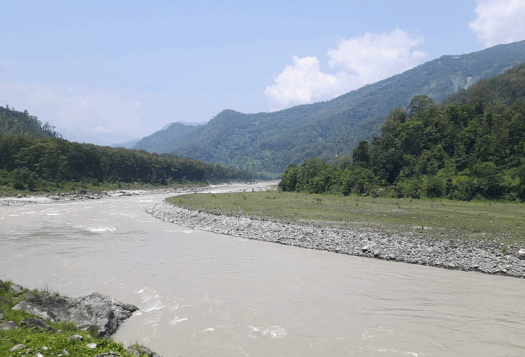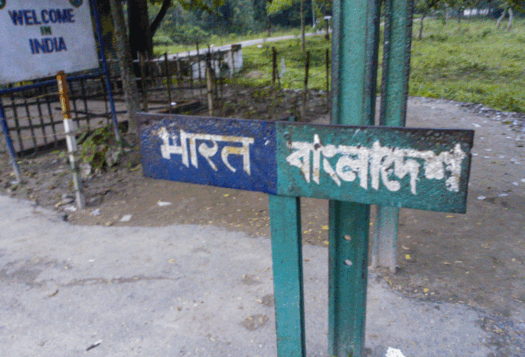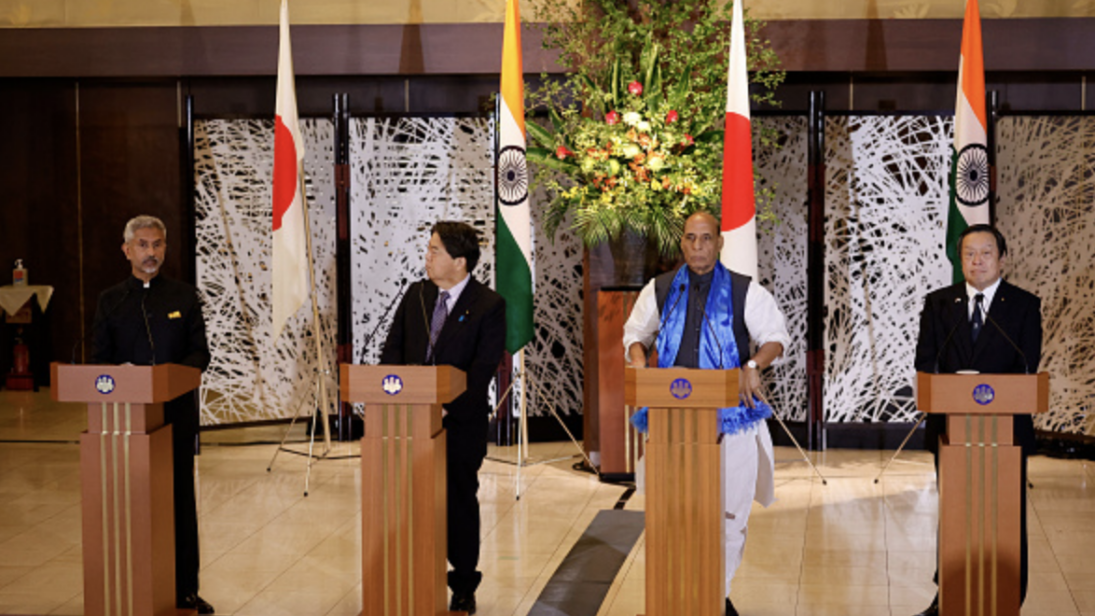
On November 4, Taiwan Deputy Minister of Economic Affairs Chen Zhengqi visited India, leading a Taiwanese delegation to sign four MoUs with India to expand cooperation in the environment, electronic manufacturing, and non-traditional medicine sectors. His visit not only marks a new shift in the relations between India and Taiwan; it is emblematic of the rising geopolitical uncertainty in East Asia. The great-power rivalry between the United States and China has thrust East Asia into a turbulent geopolitical whirlwind: a region considered the center of economic growth in the 21st century. It is here where major powers, like China, the United States, Japan, South Korea, and Taiwan, are struggling to dominate, counterbalance, or advocate for their national interests. As East Asian countries continue to adjust to the new global power equations, India is trying to determine its place within these dynamics.
Amid regional great-power competition, India sees an opportunity to strengthen its relationships with the countries of East Asia. By enhancing its Act East Policy, India can ensure that the broader Indo-Pacific region aligns with its own core foreign policy goals. India now recognizes the urgency to move beyond traditional diplomacy toward a policy of ‘strategic alignment’ to address emerging challenges in the region. India views East Asian countries as one of the many poles in the multipolar Indo-Pacific. Consequently, India wants to strengthen its partnerships with regional middle and emerging powers to jointly address shared concerns in the region.
India-East Asia Relations
Under Prime Minister Narendra Modi, India implemented its Act East policy to improve relations with its East and Southeast Asian neighbors. The Act East Policy focused on strengthening economic ties with states on its eastern flank, now incorporated into the Indo-Pacific region.
By enhancing its Act East Policy, India can ensure that the broader Indo-Pacific region aligns with its own core foreign policy goals.
Since its inception, India’s Act East policy has reinforced the need to develop closer political, cultural, defense, and strategic relations with New Delhi’s Southeast and East Asian partners. The policy views Indo-Pacific regional states as essential to India’s economic prosperity. As a result, India adopted an incremental approach to improve bilateral relations by adding defense, culture, and political topics to elevate its relationships to the strategic level. For example, India has strategic relationships with like-minded countries in the region. India has strategic partnerships with Japan, South Korea and Mongolia. In addition, positive trends in economic relations between India and Taiwan are likely to conclude with a free trade agreement.
India has been closely following the geopolitical realignment in the countries of East Asia. The region oversees significant trade with India, and Indian exports frequently pass through this region toward destinations in the Americas. This strong trade relationship highlights this region’s utility for maintaining India’s economic stability. Countries in East Asia should maintain open sea lanes of communications and the international rule of law to safeguard India’s trade interests. East Asia also comprises liberal democratic countries, like South Korea, Japan, and Taiwan. These like-minded states share aligning interests, common threats, cultural relations, and democratic systems that facilitate coordination with India. For instance, the transparent democratic systems of East Asian countries prevented global supply chain disruptions during the COVID-19 pandemic similar to India. Such disruptions holds the capacity to unsettle domestic stability – a common concern for India and its three East Asian partners. Due to eroding trust between totalitarian and democratic states, a network of more resilient supply chains has risen, leading to new strategies like friendshoring, which includes shifting supply chain networks to link with friendlier countries.
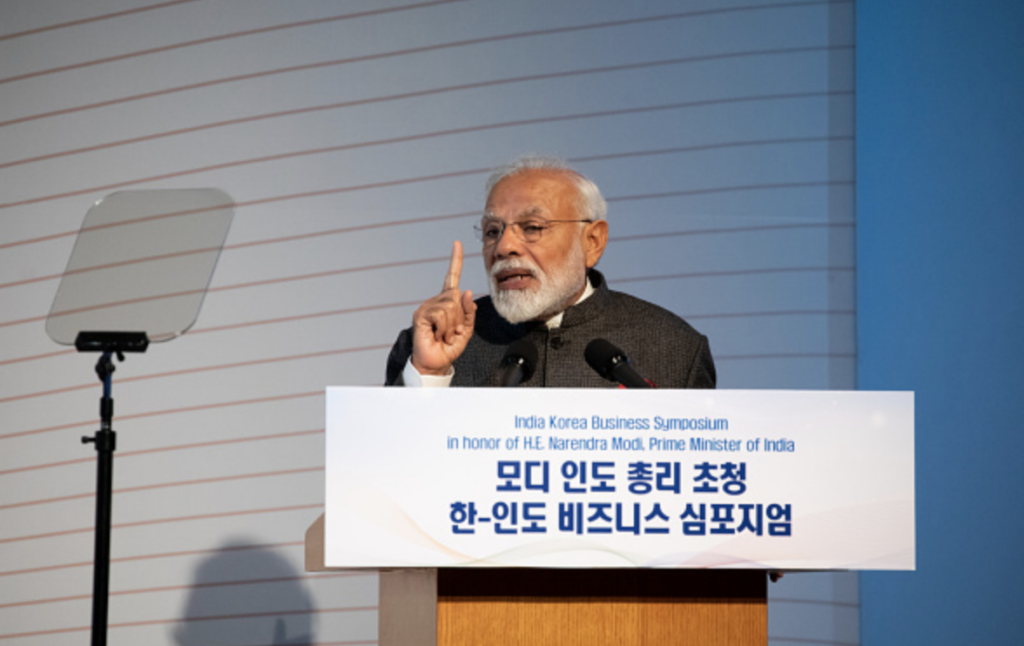
Technological prowess also contributes to the strategic vitality of the region. The technologically advanced digital societies of South Korea, Japan, and Taiwan prioritize developing diverse sectors ranging from ICTs, shipbuilding, telecommunication, and robotics to emerging technologies. These factors align with India’s economic vision and increase the desire for India to engage with the region. Thus, India has established strategic relations with South Korea and Japan and economic ties with Taiwan.
Troubles for India in East Asia
Despite the lucrative trade and cooperation initiatives between India and its like-minded East Asian partners, China remains India’s biggest concern. New Delhi seeks to counterbalance China’s growing dominance in the Indo-Pacific and the subsequent breakdown of international law and norms in the region.
The current geopolitical churning in East Asia generates new challenges for India. The rise of China is accelerating the pace of bipolarity taking shape in the Indo-Pacific region. In addition, the United States diverted much of its political attention and resources toward Europe following the Russian invasion of Ukraine. Washington has formulated structural frameworks and institutions, like the QUAD and AUKUS, to collaborate with its Indo-Pacific partners on China-related concerns. Nevertheless, India’s resources and attention are split among counterbalancing Russia, North Korea, and Iran, which will ultimately dilute its efforts to manage a growing China. The absence of a singular regional power has complicated the geopolitical landscape of East Asia. As a result, India is upgrading and buttressing its relations with East Asian countries.
India’s Evolving Approach Towards East Asia: Charting a New Diplomatic Agenda
Historical antagonism between India and China over their shared border in the Himalayas and Beijing’s increasing influence in South Asia has encouraged New Delhi to advocate for closer relations with China’s East Asian neighbors. A pattern of Chinese hegemony in South Asia, including the 2017 Doklam standoff, the 2020 Galwan incident, and the domestic political crisis in Sri Lanka this year, has steadily warped India’s perspective toward China. Most recently, a Chinese survey ship docked in Sri Lanka alarmed India over Chinese intentions. China’s increasing military power threatens India. The military capacities of East Asian countries serve as reliable defense partners for India in the region to uphold a multipolar order.
Historical antagonism between India and China over their shared border in the Himalayas and Beijing’s increasing influence in South Asia has encouraged New Delhi to advocate for closer relations with China’s East Asian neighbors.
As a result of perceived Chinese aggression, India aims to formulate a broad consensus in the Indo-Pacific region by forging sustainable dialogues with legitimate stakeholders. New Delhi is consulting through bilateral and multilateral platforms in East Asia to attain this broad consensus. India-Japan relations lie in strong economic cooperation. The two countries have focused on domestic Indian infrastructure improvements, such as a new bullet train between Mumbai and Ahmedabad and metro projects in various Indian cities. India and Japan also share a similar global outlook based on respect for a rules-based order, territorial integrity, and dispute resolution under international law. India-South Korean ties have heavily tilted toward trade and commerce. Regardless, defense has recently emerged as an additional sector to invigorate cooperation between Seoul and New Delhi. Lastly, Mongolia has included India in its “third neighbor” policy, which advocates for improving relations with countries beyond its immediate neighbors. This characterization has emphasized further strengthening their strategic partnership and underscores ‘defense emerging as the key pillar.’ India also shares a rich legacy of Buddhism with Mongolia, South Korea, and Japan. Cultural diplomacy with Mongolia and South Korea has ensured that state-level relations remain strong, but challenges for India in pursuing absolute strategic autonomy remain.
Conclusion
India shares democratic values and respect for international law with its East Asian partners. The recent visit by Indian Defense Minister Raksha Mantri to Mongolia in September signals a consistent commitment to achieving shared foreign policy goals. India has worked to secure its foreign policy interests while also respecting the sensitivities of its East Asian partners. Moving forward, India will need to counter China’s rising hegemony while managing the United States’ diverting strategic focus in the Indo-Pacific. India can coordinate with its East Asian partners to create strategic convergences and recognize the shared consensus among these countries.
***
